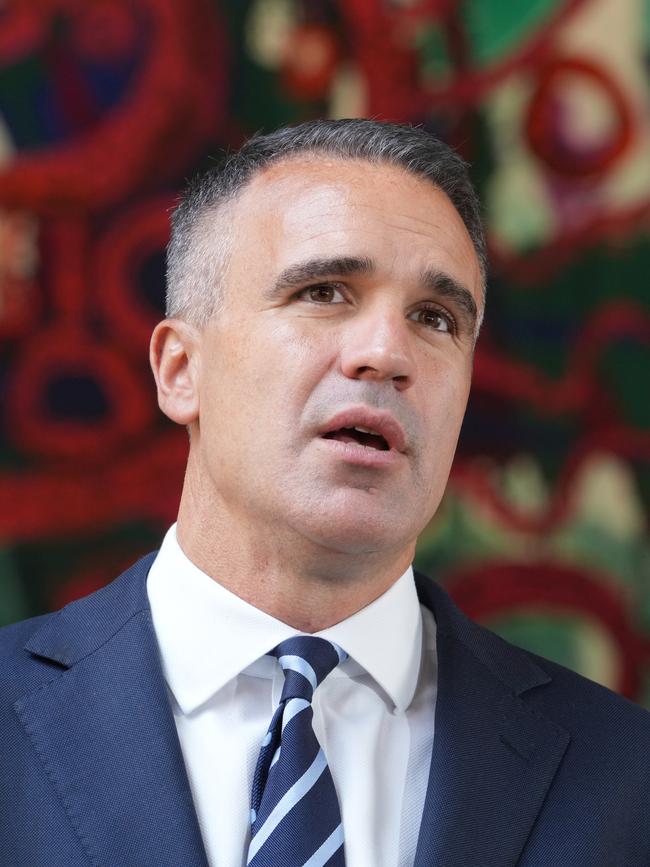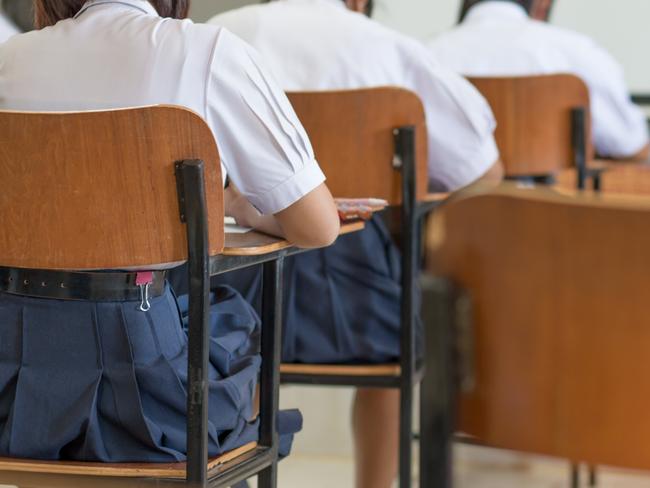‘Incorrect and dangerous’ misconception about sexist Pembroke School list
One thing blamed for a disturbing spreadsheet at an expensive private school has been labelled “both incorrect and dangerous”.
Lifestyle
Don't miss out on the headlines from Lifestyle. Followed categories will be added to My News.
Blaming Andrew Tate for a disturbing spreadsheet circulated by a group of male students at South Australia’s most expensive private school is “both incorrect and dangerous”, experts have said.
The racist and misogynistic internal fines system, revealed this week by The Advertiser, comprised a list of “offences” that included “kissing a whale”, “you’re having sloppy seconds” and “your girlfriend’s crazy”, and was compiled by some student footballers at the elite Pembroke School, in Adelaide’s Kensington Park.
Some offences were for teammates being “fat” or a “pedophile”, while another involved a racist slur degrading and targeting Indigenous women.
Monetary fines were allegedly handed out for boys who committed one of the “offences”.
The boys’ behaviour was deemed “alarming” by South Australian Premier Peter Malinauskas, who questioned the influence of Tate, the bald, cigar-smoking former professional kickboxer currently facing extradition to the UK over rape and human trafficking claims.
“You can’t help but wonder to what extent the Andrew Tates of the world on a social media platform are driving these behaviours, because I don’t suspect it’s coming from parents,” Mr Malinauskas said on Wednesday.
“I do think that young kids are more vulnerable to the extremes that are made readily available to them through social media and we see the consequences of that playing out in real time.”


A leading voice of the manosphere, Tate is one of, if not the main misogynistic influences young men speak about, and whose ideas and phrases they regurgitate.
While the increase in Tate’s popularity is a “concern that we need to address”, laying the blame for young men’s problematic behaviour solely at his feet is not the answer, according to End Rape on Campus Australia founder and director Sharna Bremner.
“Misogynistic attitudes and harmful behaviours among young men have been around longer than Tate, longer than social media and longer than the internet, and unless we address the root causes of those attitudes and behaviours, they’ll be around long after figures like Tate have faded away,” Ms Bremner told news.com.au.
“Unless we’re willing to sit with the uncomfortable reality that men’s violence in Australia is perpetrated by young men’s fathers, brothers, friends and teammates – and recognise that those people influence young men just as much as online culture – we’re not going to be able to properly address the issue.”
Ms Bremner pointed to Australia’s femicide toll — the number of women killed at the hands of men. According to researcher Sherele Moody, the toll already stands at 57 women this year, most of whom were allegedly killed by a current or former male partner.
“Many of those men who murdered women have children, and the idea that those men don’t influence the attitudes of their children would be laughable if it didn’t have potentially deadly consequences,” she said.


Pembroke principal Mark Staker said in a statement the school was “working in partnership with families to move through this challenge sensitively, delicately and educatively”.
But revelations of the spreadsheet have reportedly left some female Pembroke students so traumatised they no longer feel comfortable attending the college, which has annual tuition fees as high as $29,160.
Feminist researcher at Monash University and former teacher, Dr Stephanie Wescott, is looking at how toxic male influences are impacting behaviour in Aussie schools.
What’s often overlooked in instances like this, Dr Wescott told news.com.au, is how that behaviour in turn diminishes girls’ “feelings of safety, but also how they come to understand the relations between themselves and boy peers”.
“Gendered violence in schools has been an issue for decades. And yet, we lack meaningful policy on responses and reporting, and women are constantly disappointed, diminished and gaslit when they report concerns,” she said.
“(This) seems to have become a cultural norm in Australia, rather than something we are appalled by or actively working to eliminate.”
Girls witnessing their teachers being “constantly disrespected and undermined in their workplace has implications too”, Dr Wescott said.
Female teachers are increasingly walking away from the profession as a result – in South Australia alone, the number of those who have deserted public school classrooms has more than doubled in the past five years.
“We have a workforce crisis in teaching, in a profession of mostly women, and yet their safety is continuously deprioritised,” Dr Wescott said.
“Schools remain largely patriarchal in their structure, but also in leadership, which informs how they respond when these things occur. We hear constantly from women who are let down by their schools when they report incidents of sexism and misogyny.”

Pembroke has not made clear what, if any, disciplinary action has been taken against the offending students. Both Ms Bremner and Dr Wescott agreed schools need to take a “stronger approach” to those who engage in such behaviour – though, Dr Wescott said, “that doesn’t automatically mean punitive responses such as expulsion”.
“In most cases, where girls’ safety is prioritised (such as at Yarra Valley Grammar), expulsion is appropriate and I applaud schools who have set a standard here for acceptable behaviour,” she said.
“But zero-tolerance also means addressing ‘low-level’ behaviour, such as everyday sexism in classrooms, responding strongly to other common behaviour we are seeing such as sexual moaning, and never, ever condoning behaviour as ‘boys will be boys’.”
Ms Bremner also emphasised the need to hold offenders accountable.
“Right now we’re teaching too many of them that they can get away with the behaviour, but we have to also make sure that we’re changing behaviours, not just punishing young people for the sake of punishing them,” she added.
“Without working to change their behaviour, they’re likely to continue offending as they get older.”

As such, Dr Wescott said, eliminating gender-based violence in schools “needs to be a national priority”.
“This involves viewing schools as key sites of primary preventing, funding evidence-based prevention responses, and national and state policies driving whole-of-school cultural change,” she said, noting the need for proper guidelines and gender-based violence reporting mechanisms.
“This requires leadership from federal and state governments, and we’re just not there at all.”
Ms Bremner echoed the sentiment, stressing the urgency for “far greater investments in building violence-prevention education programs that have robust evidence bases and that address the whole of society”.
“It’s not enough to simply add consent education to our schools when young people leave the school grounds and go into a society that perpetuates misogynistic behaviour,” she said.
“And then we need those programs – as well as support services like rape crisis centres and community legal centres – to be properly funded.
“We can have the best programs in the world but if they don’t have enough funding to reach the entire population, we’re not going to see meaningful changes.”
Originally published as ‘Incorrect and dangerous’ misconception about sexist Pembroke School list





